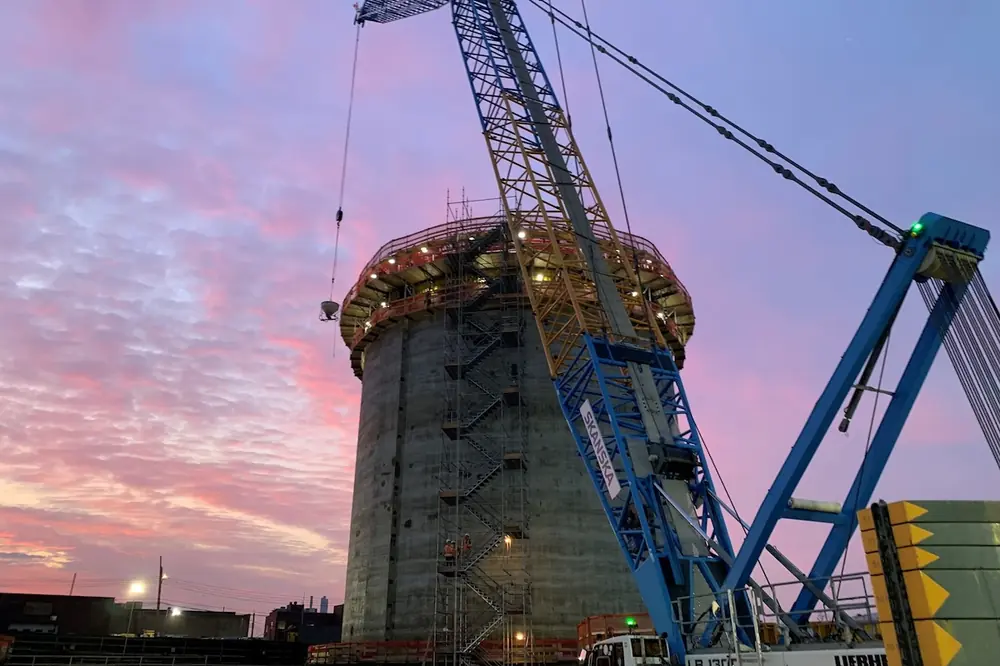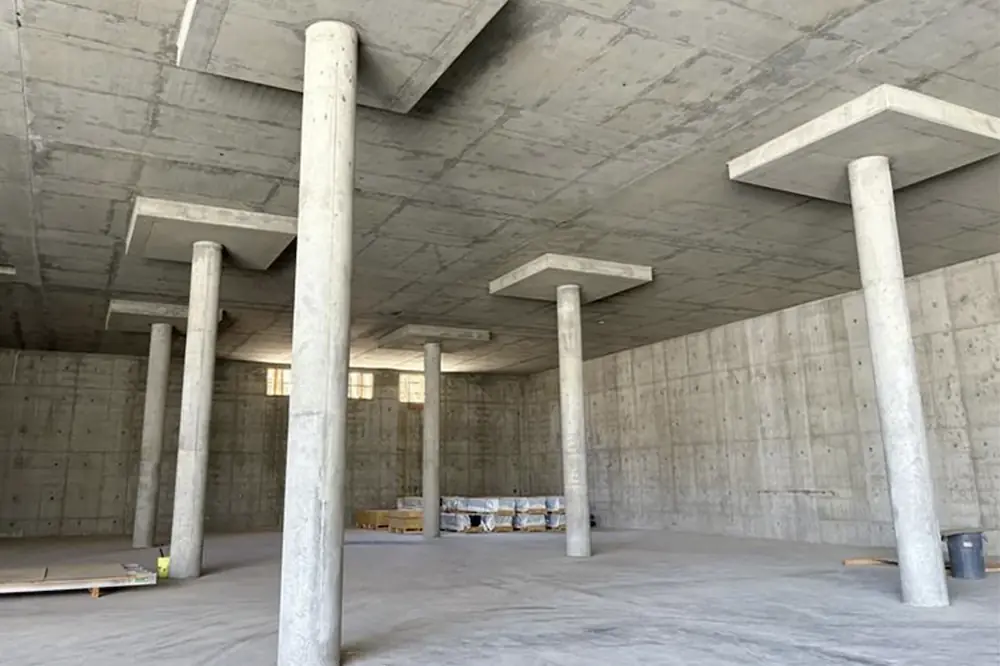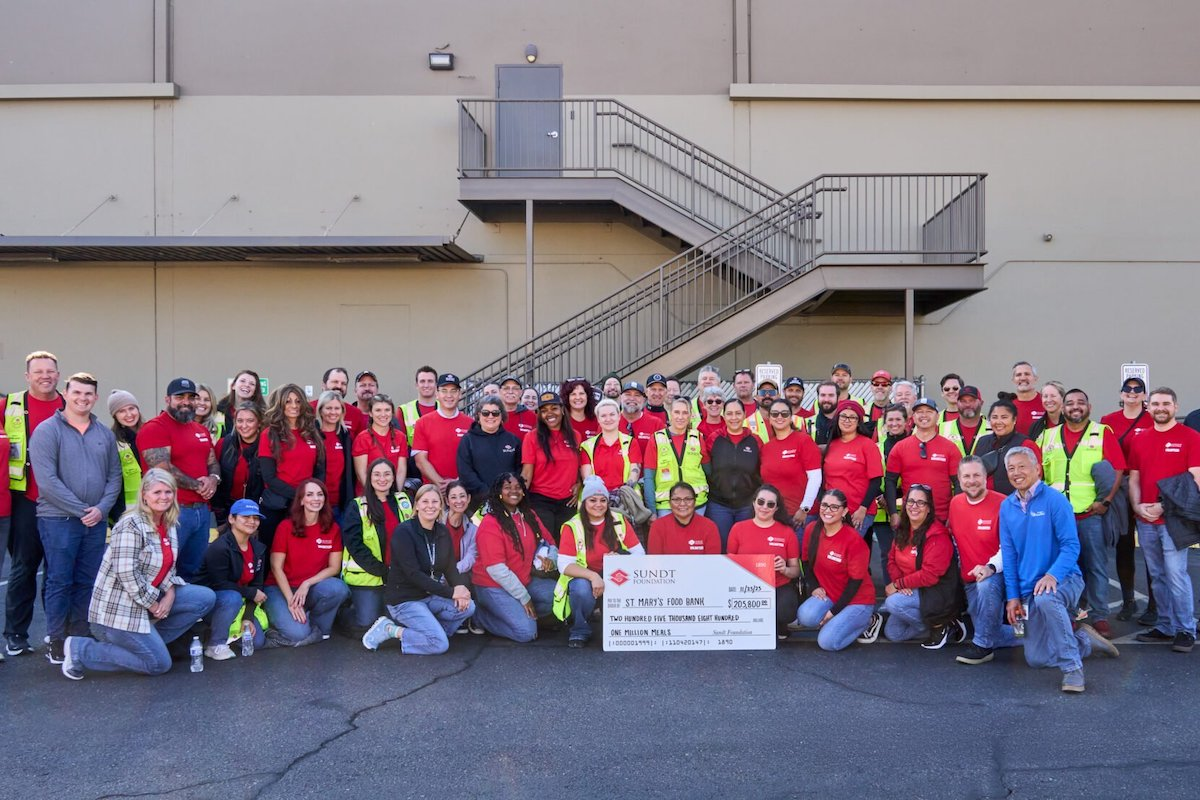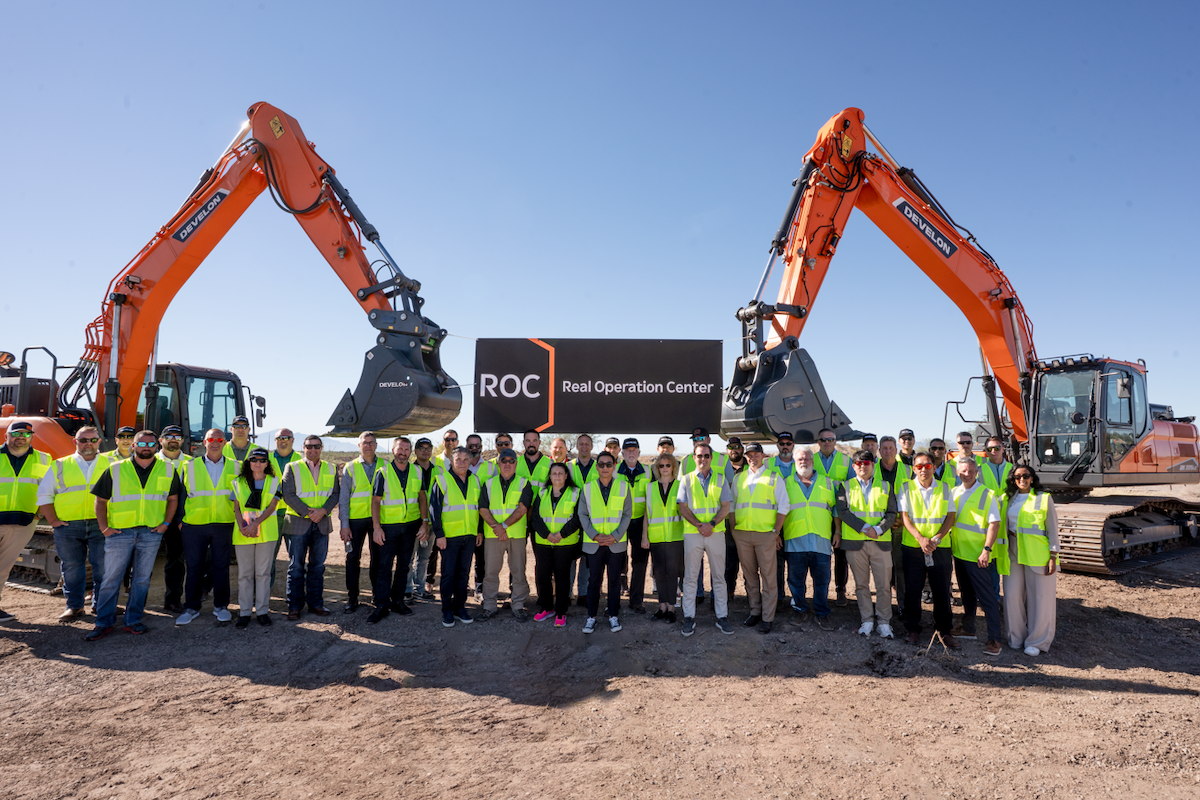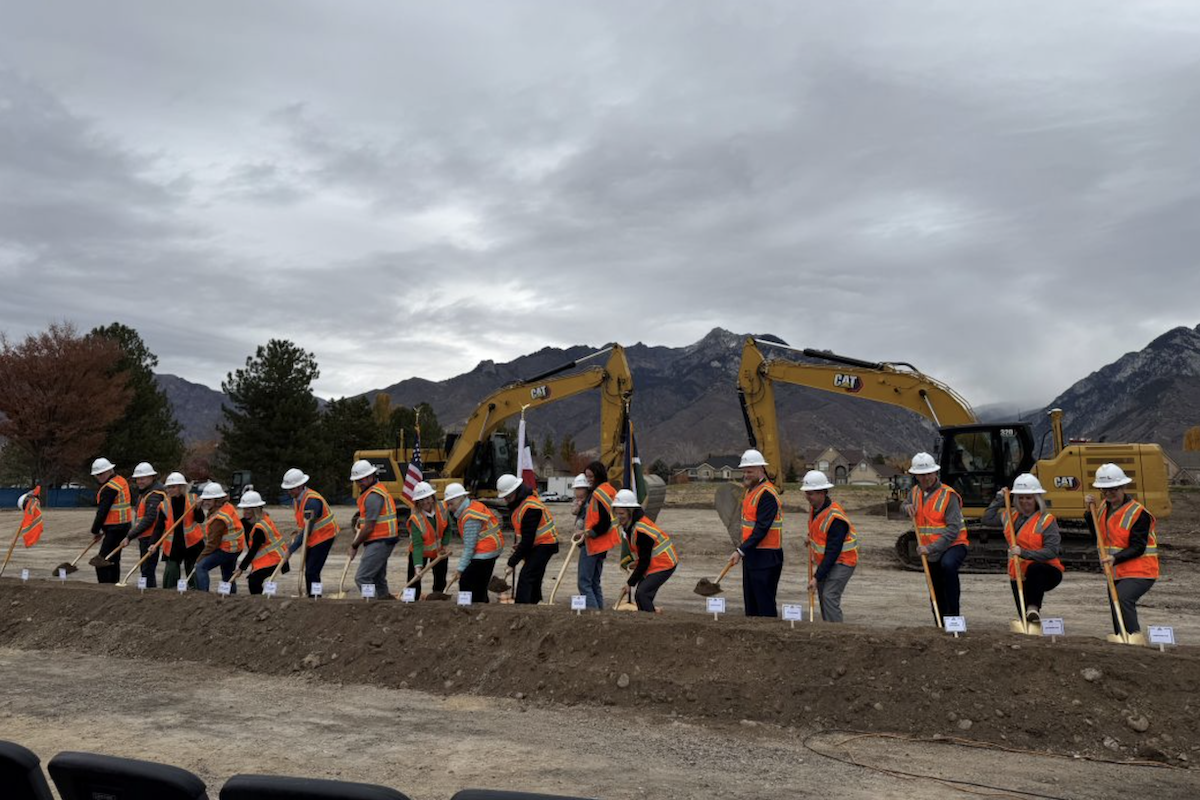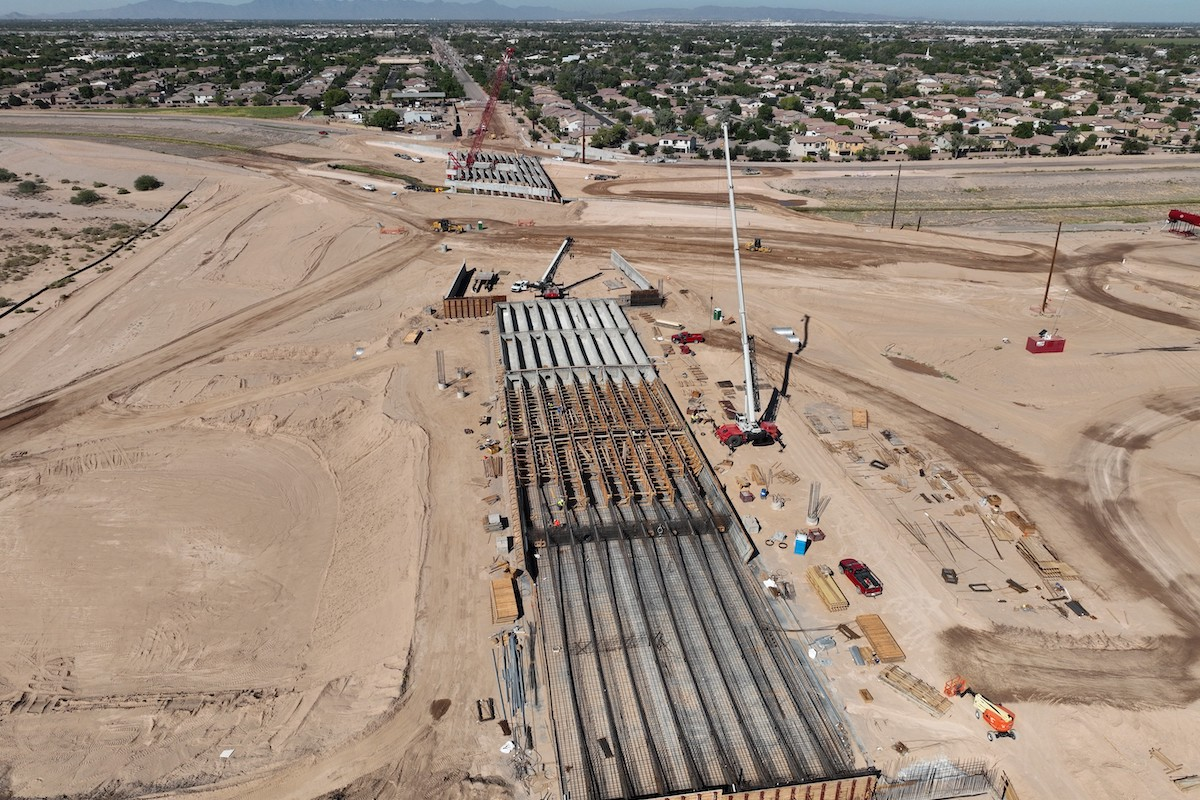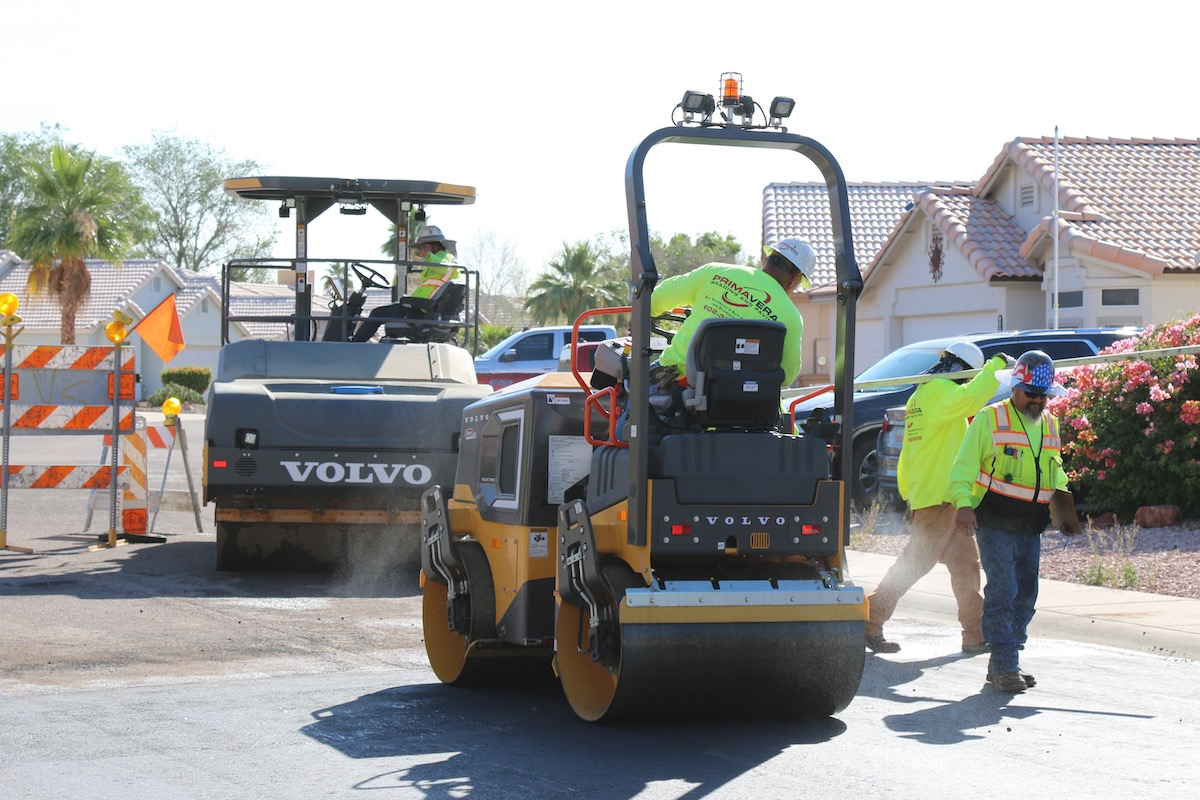“Traffic congestion in the area had been an issue, and bridge height has been a problem for years,” says Mark Nagi, Spokesman for the Tennessee Department of Transportation (TDOT).
The bridge height problem was resolved by the installation of a radar, over-height detection warning system, with lights and sirens.
“The structure had been struck by over-height vehicles in the past, and this portion of the project corrected deficiencies and provide warnings in the future to avoid potential conflicts,” Nagi explains. A newly configured interchange has eliminated congestion.
A double diverging diamond was a primary aspect of the project.

| Your local Bobcat dealer |
|---|
| Ditch Witch West |
| Faris Machinery |
| Ditch Witch West |
| Faris Machinery |
“This is the third diverging diamond constructed in Region 1 and the first to be designed in house with TDOT personnel,” Nagi reports.
The new configuration provided two lanes in each direction on Boone’s Creek Road. And two signalized intersections were added at either end of the overpass and a shared-use pedestrian and bicycle path with crosswalks and signs was added under the bridge on the opposite side to the creek.
Additionally, the job required completing water and sewer line upgrades, adding retaining walls and making a bridge repair to the steel beams damaged by trucks through heat straightening.
TDOT awarded the construction contract to Summers-Taylor of Johnson City, Tennessee – a fourth-generation family-owned and operated heavy construction firm founded in 1932 by Lines Taylor as a general maintenance and construction contractor. The company grew after World War II and built schools, hospitals, and retail shops. The founder’s daughter married Robert W. Summers, who joined the firm and switched direction of the company to road projects and paving. Subsequent generations entered the utility work and bridge construction business.
Summers-Taylor employs about 550 employees. It operates four asphalt plants and 11 concrete plants in East Tennessee. The company will travel to northern Alabama and Georgia for bridge work and roadwork in North Carolina and Virginia. Summers-Taylor’s motto is “Quality is our shield.”

| Your local Gomaco dealer |
|---|
| Faris Machinery |
| Faris Machinery |
“We have a dedicated workforce, that is experienced and knowledgeable,” says Grant Summers, President of Summers-Taylor. “And we are proud of our work.”
“The unique crisscross design allows two directions of traffic to temporarily cross to opposite sides of the roadway in order to travel across the overpass, and then cross back and resume the original travel pattern,” Nagi says. “Concrete dividers, stop bars, traffic signals, and extensive signage guide motorists through the interchange.”
Summers reports that once motorists became familiar with the new configuration, traffic flowed through easily.
Summers-Taylor shifted traffic to an outer lane and shoulder while working on the utility relocation, which required temporary connections.
Installing retaining walls for the bike path also presented challenges. Summers-Taylor crews drilled piles for soldier-pile lagging walls.

| Your local Trimble Construction Division dealer |
|---|
| SITECH Southwest |
| SITECH Northwest |
| SITECH Rocky Mountain |
| SITECH Southwest |
| SITECH Northwest |
| SITECH Rocky Mountain |
Traffic was maintained on the interstate for most of the project, with multiple traffic control phases. Summers estimates it took about 15 or 20 traffic shifts.
“The biggest challenge was maintaining traffic flow while the project was under construction,” Nagi says. “Multiple traffic phases were necessary to build the additional lanes, curbing, storm and sanitary sewer installation, and ramp widening.”
The project required a mix of asphalt and concrete paving, and Summers-Taylor performed both. The ramps are paved with concrete and the mainline asphalt.
“The asphalt rides well,” Summers says. “It’s a high-quality project, which we are really proud of.”
A weekend road closure began on March 19, 2021, at 10 p.m., when all traffic exiting I-26 could only turn to the right, while crews poured concrete islands, added a barrier wail, signs, pavement markings, drainage, sewer, traffic signals, and the asphalt surface. The exit opened to traffic on March 22, 2021, at 4 p.m.

| Your local Volvo Construction Equipment dealer |
|---|
| Faris Machinery |
| Faris Machinery |
“The contractor had between 80 and 90 different employees working on the project during the course of that weekend, and TDOT had 10 employees working in shifts to ensure contract compliance,” Nagi recalls.
“It was a huge coordination effort,” Summers says. “There was a substantial amount of equipment used.”
Summers-Taylor had on-site track-mounted excavators, cranes, track-mounted loaders, rubber-tire backhoes, rubber-tire excavators, articulated trucks, dozers, motor graders, a milling machine, and paving machine.
“We used full GPS-controlled equipment for grading,” Summers says.
Additionally, “shallow intact rock has been an issue with excavation throughout the project work, specifically with deep sewer-line installation. Blasting was required some areas prior to grading activities,” Nagi continues.

| Your local Bobcat dealer |
|---|
| Ditch Witch West |
| Faris Machinery |
| Ditch Witch West |
| Faris Machinery |
The interchange opened to traffic in May 2021. Summers reports that upon opening, the traffic no longer backed up in the interchange.
“I’m proud our team was able to handle this job with its complexity with minimal impact to the public,” Summers concludes. “We were happy to be involved in something this complicated that really makes an impact on people’s lives.”
Photos courtesy of Summers-Taylor







